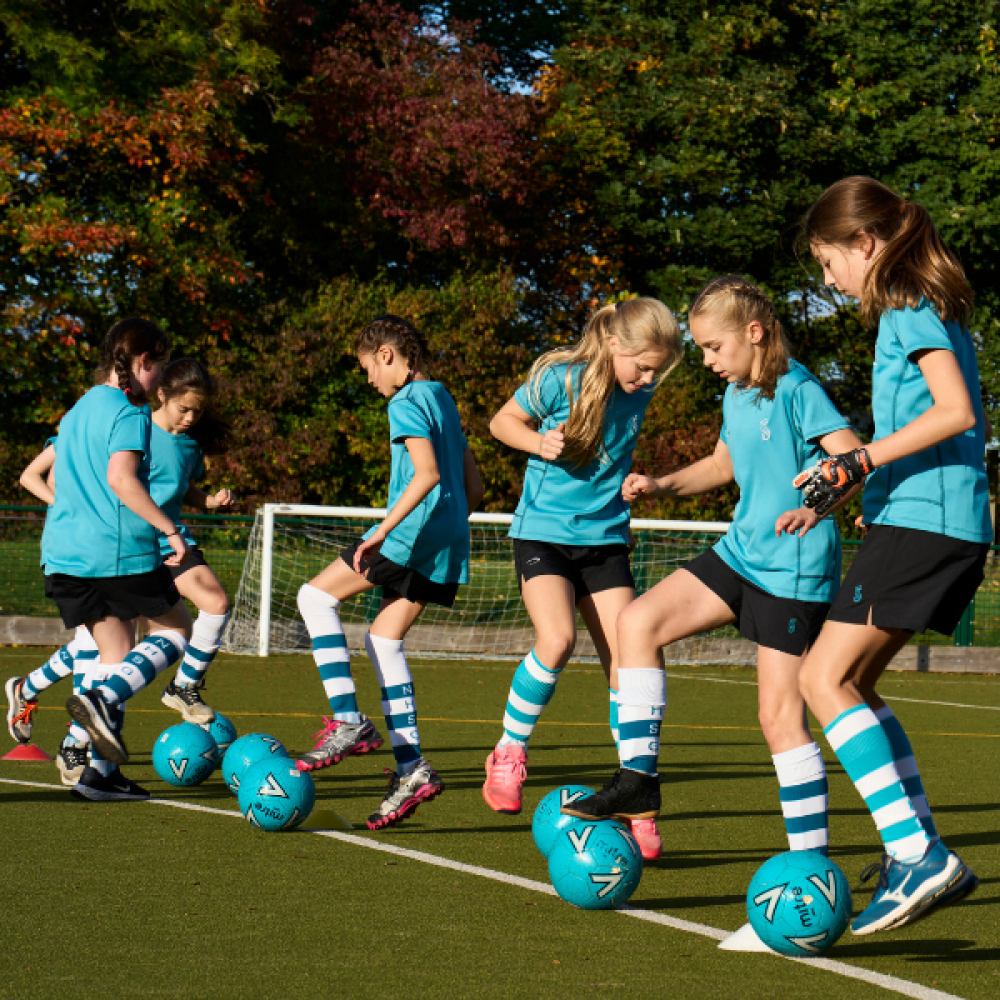What Are The Benefits of Attending an All-Through School?

An all-through school has plenty of benefits for your child’s education

At Newcastle High School for Girls (NHSG), pupils can join from the age of three and remain there until they complete their Sixth Form studies at age 18. ‘As an all-through school, the NHSG ethos is like a thread that runs through the entire school in terms of atmosphere, expectations and pastoral care and it allows us to deliver fully our vision to empower girls to be leaders, trailblazers and world-shapers,’ says head Michael Tippett. ‘In more specific ways, it means that we become part of the pupil’s extended family in that we know each and every girl on an individual basis. We see them grow and develop and have a deep understanding of their strengths, areas for development and their personality.’ That relationship extends beyond the pupils to parents too.
It’s during Sixth Form that pupils are making that all-important transition to adulthood, and Michael says it’s absolutely critical that they have the room for growth both intellectually and personally while being challenged, guided and supported in equal measure. ‘As an all-girl school, we strongly believe the two formative years in Sixth Form should be free of external factors such as gender stereotyping on subject choices, and be in an empowering stage during which there are no limits to what the girls can achieve both in the Sixth Form itself and beyond,’ he continues.
Read More: How Schools Prepare Students for the Future
‘The girls in our Sixth Form tell us how much they value our strong community and peer support, and how it enables them to develop their own sense of self-belief and confidence. Looking at what our Sixth Form offers in more detail, we operate a very flexible timetable, so alongside the wide range of A Levels the pupils choose from, we make sure that they can study the subject combinations that work for them. This is a big plus-point when making those all-important choices.’
NHSG work with the pupils to find their passion and help them to pursue it. ‘There is no template they have to follow,’ Michael explains. ‘The foundations we lay down from the Early Years Foundation Stage (EYFS) upwards, and the development of the girls’ leadership skills, allows them to be aspirational in their post-school choices. In addition, we ensure all our pupils have exposure to strong female role models, from EYFS right through to Sixth Form. It’s a powerful combination. On a practical level, our Sixth Form pupils learn about life at university, managing their finances, cooking, staying safe, basic first aid, driving safely and self defence – often it’s these sorts of skills that can trip up university students as they grapple with independent living!’
At Barnard Castle Preparatory School, staff value uniqueness and have an excellent understanding of each child, allowing them to support their educational journey. ‘We help each child to flourish, but most importantly we support them along the way when things get tough, appropriately preparing them for life at Senior School and beyond,’ adds deputy head Fe Beadnell. ‘Our Sixth Form offering is unparalleled: a place where the individual is celebrated and yet the community is at the heart of everything we do. The plethora of opportunities, both academic and extra-curricular, allow students to explore interests and career paths, carving out future possibilities with their own set of transferable skills to stand out from the crowd.’
The contemporary workplace demands flexibility and resilience, balanced with empathy and moral poise. ‘All of these strengths are encouraged as a Barney Sixth Former, as every Sixth Former is a leader in our school,’ Fe continues. ‘We offer A Levels, Pre-U and the Extended Project Qualification and all subjects are delivered in small classes by expert classroom practitioners. These forums allow tutorial style environments where debate and individual voice preside; this is further supported by each student having a personal tutor providing academic and pastoral advice, as well as an experienced UCAS advisor and dedicated careers coordinator on-site.’

Alex Newman, deputy head (Teaching and Learning) at Newcastle School for Boys argues that strong relationships with teachers alongside confidence in surroundings can play a significant factor in maximising outcomes and overcoming difficulties.
‘As a child moves through the various stages of school, the curriculum builds on prior learning and adapts to the needs of individual and their cohorts,’ he adds. ‘Whether this be through closely co-ordinating and then developing the skills required to access IT, or the core building blocks of reading and maths, a single school environment provides the means for a whole school curriculum which accelerates the opportunities for progress and promotes best outcomes. It is one of the reasons why Newcastle School for Boys is consistently praised and recognised for its positive ‘value-added’ results for our pupils by the time they complete their GCSEs and A Levels.’
The Sixth Form at Newcastle School for Boys offers the benefit of smaller class sizes. ‘The demands of Level 3 qualifications are significant; there is a heavy content to deliver and the standards that pupils need to achieve in a short space of time, means that smaller class sizes allow teachers to offer more immediate and in-depth feedback that would not be possible in larger classes,’ says Victoria Snowdon, assistant head and head of Sixth From. ‘Curriculum flexibility is another benefit that can be achieved in an independent Sixth Form. The pathways followed by pupils are personalised based on their interests and progression routes. The additional opportunities to stretch and challenge their academic and personal development are crucial to enhancing their skills.’
Having the flexibility within the curriculum provision means that the school can embed progression programmes supporting students and providing guidance throughout the Sixth Form. ‘Sixth Form is a stressful time for students and parents,’ Victoria continues. ‘We provide support for both at every opportunity, regardless of the route they wish to take. University is not for everyone and there are many different routes available to take. We have reacted to changes in employment trends and higher education by implementing programmes and information evenings on applying to university, apprenticeships and seeking employment. By the time the pupils leave they all have a CV, have taken part in mock interviews, had one-to-one career interviews, practice assessment centres and work experience placements.’







